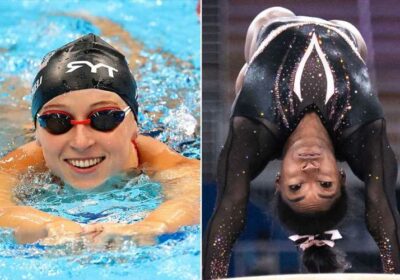This Olympics’ place in history likely already defined by COVID-19

More On:
2020 olympics
Japan PM says country must ‘fulfill our obligation’ to the world ahead of Olympics
Kevin Durant: Team USA teammate ‘gotta learn some respect’
Olympics quietly worked behind the scenes to stamp out cheating before Tokyo
Team USA chiropractor massages language, sorry for linking COVID measures to Nazis
One year later, the Summer Olympics have arrived. Star athletes representing hundreds of countries have convened in Tokyo for international competition unlike any previous Summer Games.
There won’t be spectators. There could be forfeits due to positive coronavirus tests. Already, a handful of athletes have had to bow out. The Games will be hosted by a city under a State of Emergency that is scheduled to continue beyond the end of the Olympics, which will begin in earnest with the Opening Ceremony on Friday and will run through Aug. 8.
This may very well be remembered as the COVID-19 Games.
Just a few days ago, Tokyo Olympics organizing committee chair Toshiro Muto said the Games could still be canceled if cases continued to rise, although at this point it seems unlikely. On Wednesday, Tokyo had 1,832 new infections, a six-month high. More than 70 people connected to the Olympics have already tested positive.
Ultimately, the decision to cancel the Games would rest with the International Olympic Committee, unless the Japanese government were to step in and impose measures that would make it impossible for the Games to go on, such as a stay-at-home order or other restrictions.
“We are working 120 percent on the delivery of [a] successful Olympic Games Tokyo 2020,” Tokyo 2020 Organizing Committee spokesperson Masa Takaya said this week.
The Opening Ceremony will lack the usual pomp and circumstance. The “Parade of Nations” will include fewer athletes from their respective countries as many will arrive late and leave early because of coronavirus restrictions.
Even the act of awarding medals will be different. Typically, dignitaries place the medals around the athletes’ necks as they stand on a podium during the medal ceremony. But this year, medals will be placed on a tray and athletes will put them around their own necks.
As for actual competition, storylines will be aplenty. Americans Simone Biles (gymnastics) and Katie Ledecky (swimming) will look to build upon past dominance and further add to their legacies. The U.S. women’s basketball team, carrying a 49-game Olympic winning streak that dates back to 1992, is out to win a seventh straight gold medal. The men’s team, meanwhile, enters the Games after a shaky exhibition performance, in which it lost to Nigeria and Australia, and without top stars such as LeBron James, James Harden and Kawhi Leonard, who passed on competing due to injury or indifference. The American women’s soccer team, which was stunned by Sweden in its first match in group play, is looking to become the first team to win an Olympic title following a World Cup victory.
One glaring American absence is track and field star Sha’Carri Richardson, who won the 100 meters in the Olympic Trials, but was disqualified for a positive marijuana test. That paves the way for Jamaica’s Shelly-Ann Fraser-Pryce in her mission to become the first woman to win three straight gold medals in the event.
For the first time, there will be a 3-on-3 basketball event for men and women, in addition to karate, surfing, sports climbing and skateboarding. Baseball and softball are back after a 13-year absence, with six teams qualifying in each sport.
Friday, it officially gets started. What follows will be a Summer Olympics unlike any other.
Share this article:
Source: Read Full Article
